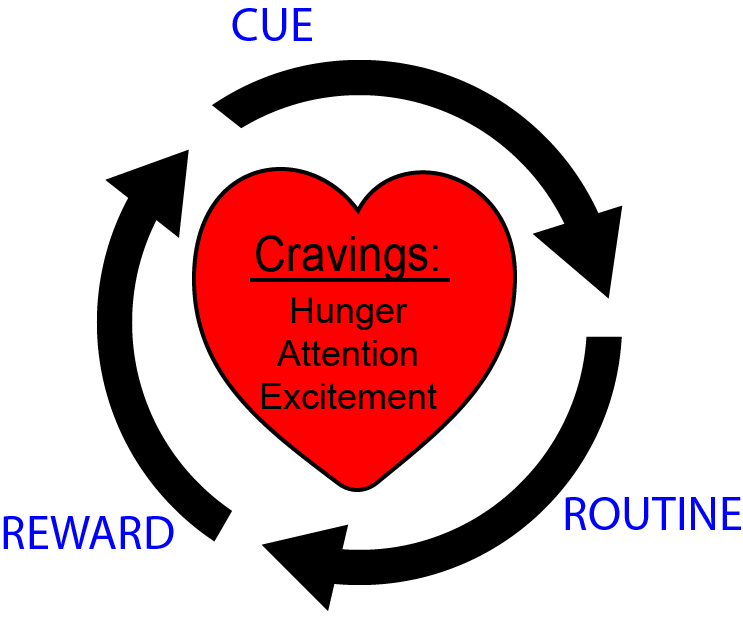Author: Charles Duhigg
Format: Audible
Subject: Human Behaivor
Rating: 10/10
Summary:
This book explains why we habitually do things that are bad for us, and why we often struggle to introduce habits that are good for us. Most of what we do everyday are actually habits. Habits are in effect, short cuts, that eliminate the need to make decisions, and to save mental energy. Our brains establish habits for pretty much everything. and they do so without regard of whether the habit is good or bad for us. What our brains do know, is that if they perform the habit, they will get a shot of dopamine.
A habit loop consists of four parts and three steps. The three steps are: a cue, a routine, and a reward. The three steps perform a habit loop. We experience a trigger, we perform a routine, and then we get a reward. Performing the habit loop delivers a powerful shot of dopamine to our brains. But at the heart of a habit is the craving. The reward we receive from the habit satisfies one of our cravings. Cravings are what makes habits so difficult to eliminate.
We could try to simply resist the craving, but trying to change habits through sheer willpower is very difficult. Willpower is finite. If we try to introduce a habit through sheer willpower, then we will need to conserve our willpower for the moment(s) that we expect to perform the new activity.
However, if we can introduce the new behavior by re-engineering one of our existing habit loops, then we are much more likely to succeed. The easiest way to re-engineer a habit is to keep the old cue, deliver the old reward, and change the routine.
In order to change a routine, we need to understand what cue triggers the routine. Cues almost always fit into one of 5 categories: Location, Time, Emotional State, Actions of Others, Preceding Last Action. We also need to identify the reward and underlying cravings the habit is trying to satisfy. We can find an appropriate substitute reward by recognizing the cue, changing the reward, and then waiting 15 minutes to see if the craving has been satisfied. If it has, we have just found a new routine that we can begin executing the next time the cue is triggered. Otherwise, we substitute a different reward, until we do satisfy the craving.
Favorite Quotes:
- The Golden Rule of Habit Change: You can’t extinguish a bad habit, you can only change it.
- Champions don’t do extraordinary things. They do ordinary things, but they do them without thinking, too fast for the other team to react. They follow the habits they’ve learned. – Tony Dungy
- We are what we repeatably do. Excellence is not an act, but a habit.
- But to change an old habit, you must address an old craving. You have to keep the same cues and rewards as before, and feed the craving by inserting a new routine.
- Good leaders seize crises to remake organizational habits.
- Studies have documented that families who habitually eat dinner together seem to raise children with better homework skills, higher grades, greater emotional control, and more confidence. (As a side note, my wife considers family meals as sacred. And by doing so, she has introduced an excellent keystone habit into our family’s routines.)
- Exercise is a keystone habit that triggers widespread change.
- When a habit emerges, the brain stops fully participating in decision making.
- Willpower isn’t just a skill. It’s a muscle, like the muscles in your arms or legs, and it gets tired as it works harder, so there’s less power left over for other things.


 ?
?